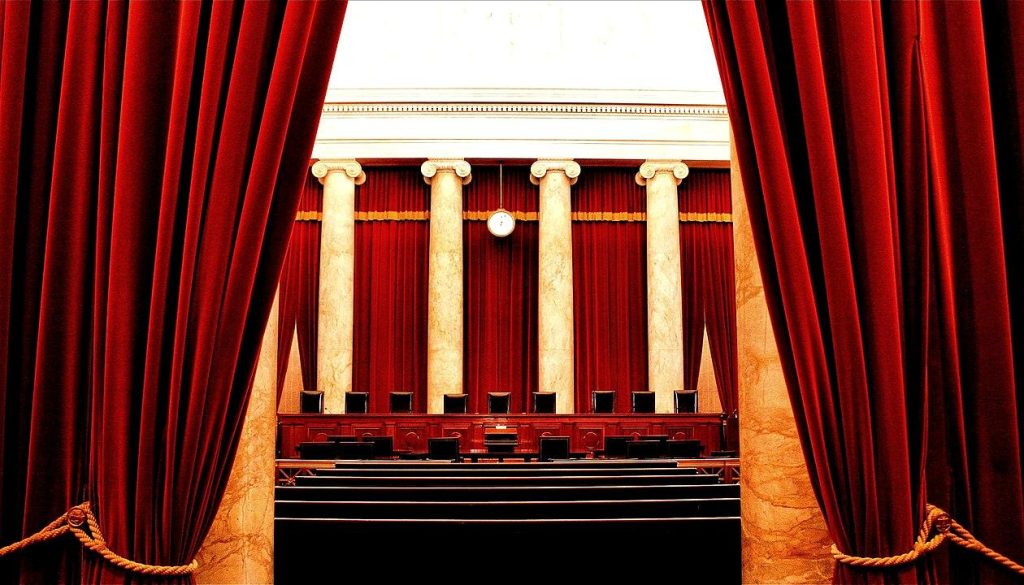
By Phil Roeder – Flickr: Supreme Court of the United States, CC BY 2.0, https://commons.wikimedia.org/w/index.php?curid=32650356
Updated May 27, 2023
Finishing the “Love & the Law” series, this article reviews 2 cases at the heart of the right to privacy for the LGBT community: Bowers v. Hardwick, decided in June 1986, and Lawrence v. Texas, decided 15 years later in June 2003.
First Bowers…
Hardwick was arrested in 1982 and charged with violating Georgia’s sodomy law. The District Attorney refused to continue prosecuting the case for lack of evidence. Still, Hardwick sued on the grounds that the Georgia statute, prohibiting “any sexual act involving the sex organs of one person and the mouth or anus of another,” violated his constitutional rights. The district court dismissed the suit for the failure to state a claim upon which relief could be granted. The Eleventh Circuit reversed using a right of privacy as its rationale, requiring the State to prove it had a compelling interest in maintaining the law. The State appealed; other courts disagreed, so the Supreme Court of the United States agreed to hear the case.
The Court framed the issue as being whether the U.S. Constitution provided a fundamental right to the LGBT community to participate in gay sex. Talk about a narrow frame. It further explained that gay sex was not a required component of privacy rights and though Hardwick argued on the grounds using other Supreme Court cases – Griswold v. Connecticut and Eisenstadt v. Baird, the Court asserted that there was no link between those cases and his. Those cases involved family, marriage, or procreation; this case did not.
The Court continued to explain that it was trying not to judge the case on ideological, moral grounds and would look to the defining essence of those rights that require a compelling interest be shown. That essence could be determined under one of 2 formulae: (1) if the activity was proscribed, there would be no liberty or justice; or (2) the rights were those “deeply rooted in the nation’s history and tradition.” According to the Court, gay sex didn’t meet either formula. Then, the Court continued to judge the case on ideological and moral grounds: “The law, however, is constantly based on notions of morality, and if all laws representing essentially moral choices are to be invalidated…the courts will be very busy indeed.” Eleventh Circuit’s decision was reversed and the law remained valid until…
The Love & the Law Episodes: Brief Case History | Contraceptives | The Color of Love | The IRS v. NY |
Privacy? No. Sex? No. History? No. Liberty? Yep. Pt 1 | Privacy? No. Sex? No. History? No. Liberty? Yep. Pt 2
